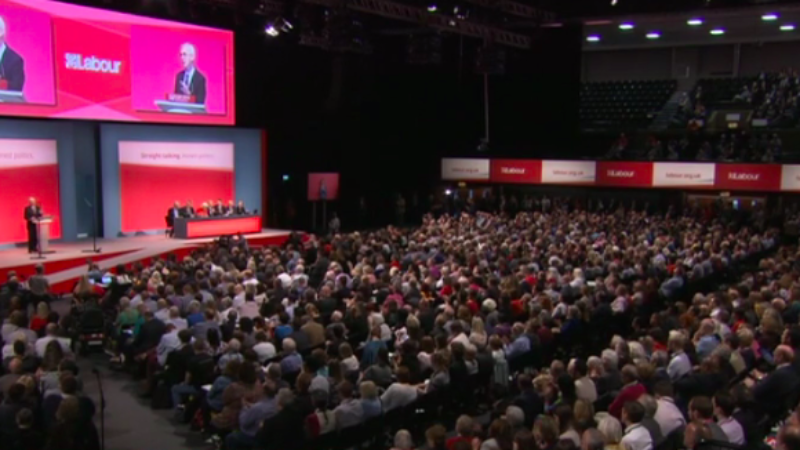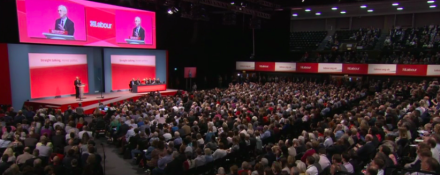

Labour conference will this week vote on a raft of rule changes agreed by the party’s ruling body – but the revival of Shadow Cabinet elections is not among them.
The package of party reforms would confirm that a sitting leader will not have to seek nominations in the event of a leadership challenge, the explicit ruling out of councillors’ ability to support illegal budgets, and new policy powers for Women’s Conference and the Scottish and Welsh Labour parties.
The changes will be debated and approved or rejected on Tuesday morning but their passage into the rule book may not go smoothly. Some pro-Corbyn elements of the party’s left are unhappy that the Conference Arrangements Committee (CAC) has determined that the rule changes will be voted on “as a single item”, meaning that delegates will not be able to support or reject individual reforms.
Among the measures proposed, most of the disquiet from the left relate to changes to the composition of the national executive committee. If delegates approve the plans this week then one frontbencher from both Scottish Labour and Welsh Labour will be added to the NEC. Importantly, the choice of NEC rep will be decided by the leaders of the Scottish and Welsh parties – and, with Kezia Dugdale and Carwyn Jones both seen as Corbynsceptic figures, it would be likely to mean the two new members would make life more difficult for the left. In the finely balanced political make-up of the NEC, they could make a huge difference.
Some more hardline left-wing delegates are also sceptical of a rule that would make explicit that Labour councillors will “face disciplinary action” if they support an “illegal budget”, which ignores cuts implemented by the Government.
The row over illegal budgets was at the forefront of Labour’s internal battles in the 1980s, when the Militant-run Labour council in Liverpool set an illegal “deficit budget”. This eventually led to Neil Kinnock’s famous conference speech lambasting “the grotesque chaos of… a Labour council hiring taxis to scuttle around a city handing out redundancy notices to its own workers”.
This could mean that Corbynite delegates will vote against the changes that would make it simpler for the veteran left-winger to be on the ballot in the event of another leadership challenge. In the rule book section on challenges, a new section would state that “the sitting Leader or Deputy Leader shall not be required to seek nominations in the event of a challenge”.
One pro-Corbyn delegate, who will be voting against the rule changes, described the decision to tie all the reforms into one package as “ridiculous”.
Scottish and Welsh Labour insiders are delighted with the reforms, however, which would hand them more power over UK party policy as well a new heap of devolved powers. This includes the leaders of each of the parties taking part in the important Clause V meetings to confirm the manifesto ahead of a UK election.
Yet the most important aspects for them is that the parties would be able to determine their own policy on areas not currently devolved, and totally independent of UK party policy, and be given power over selections for Westminster seats in Scotland and Wales.
“This is what we’ve been pushing for for a decade,” said one Scottish Labour insider, who said that the new rules would avoid a re-run of the Falkirk selection row, in which it is claimed the then-Scottish Labour leader, Johann Lamont, was kept in the dark.
They also said that the party could possibly take its own positions on areas like defence, foreign affairs and welfare. Any policy differences with the UK party would have to be worked out through the framework of the National Policy Forum (NPF) or newly adopted procedures.




More from LabourList
‘Turning public services around: Haringey’s story of child protection’
‘Can Labour turn the green tide back to red?’
Tom Belger column: ‘Why is Labour making migrant exploitation easier?’